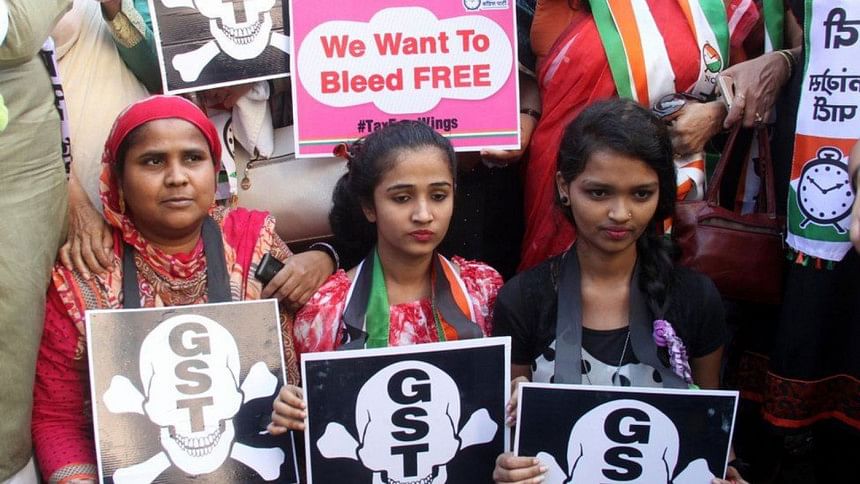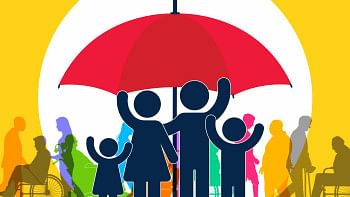Menstrual hygiene management: Ensuring affordability and accessibility

The basic human right to manage menstruation without facing economic constraints and social stigma is often perceived as a privilege for girls across the globe. Period poverty—which relates to the inaccessibility to affordable menstrual hygiene tools, safe and private toilets, adequate water and sanitation, and waste management—is a global concern. Furthermore, it acts as one of the major obstacles to girls and women going to schools and workplaces till date.
While developed countries like Scotland are taking revolutionary steps towards ending period poverty through legal bindings on local authorities to ensure free provision of period products for anyone who needs them, much of the developing world still struggles with tackling the stigma around menstruation. In some parts of the world, women are still ostracised away from basic day-to-day activities, including travelling outside homes and attending religious and social events, due to the cultural stigma attached to menstruation. Although Bangladesh has been lauded for achieving gender parity on various fronts, the issue of period poverty has not received much attention or priority in national policy debates.
According to the National Hygiene Survey conducted in 2018, 30 percent of girls have reported missing school for an average of 2.5 days per month owing to periods, while only 23 percent of schoolgirls have access to private toilets with water and adequate facilities at school. Menstrual health education is still largely absent in schools, leaving most girls unprepared and unequipped for managing their own menstruation properly. A significant proportion of women still rely on old cloth or rags to manage their periods, which are often not washed and dried properly, giving rise to potential health problems.
Another problem unique to menstruation is the period tax. That is, sanitary products for women often have a certain proportion of tax attached to them. Issues related to unaffordability and inaccessibility gradually mobilised advocacy against the period tax worldwide. Previously, such campaigns were also seen to be fruitful in India, resulting in the removal of a 12 percent tax on sanitary products in 2018. Many local activists and NGOs in Bangladesh came together to advance the idea that the period tax was an unfair burden on women, particularly those who are already financially disadvantaged, in accessing a basic health necessity product. This movement led the National Board of Revenue (NBR) to remove supplemental duties on imported raw materials used in the manufacturing of sanitary products for a period of two years between July 2019 and June 2021. However, some conditions were laid out for local manufacturers to avail the exemption, including expanding investment by at least 30 percent to ensure value addition and employing at least 250 workers in the factory. The conditions favoured mostly the big companies that already owned the majority of the market share and did not directly contribute to creating an enabling environment for small and medium enterprises to enter the market.
The complete social and economic impact of this temporary tax relief measure is yet to be evaluated, and concerns have started to arise regarding changes in tax policy in the upcoming budget that may reverse any progress that has been achieved. Moreover, despite the removal of supplemental duties, the total tax incidence of sanitary napkins still remains staggeringly high because of additional VAT on production, sales tax, regulatory duties, etc. Ultimately, this contributes to a high retail price and prevents women from shifting to hygienic disposable pads.
Failure to ensure public-private initiatives around price and tax reforms for menstrual products at such a critical time will further add to the woes of women across the country. The pandemic's regressive impact on gender equality has been witnessed globally, as women in most parts of the world were disproportionately affected by the increased burden of domestic unpaid work and job losses. Although female labour force participation has gradually increased in Bangladesh over the last 50 years, women are still largely engaged in informal and low-paid jobs, rendering them more vulnerable to external economic shocks. What is even more concerning is the prevalence of intra-household inequality—an unequal allocation of resources among family members—making it difficult to uncover women's precarious socio-economic situations.
With increased economic insecurity caused by the pandemic, women are also likely to face an erosion of their autonomy and control in household decision-making and consumption. In such a scenario, economic disruptions and withdrawal of policies designed to improve affordability will lead to girls losing access to safe and hygienic menstrual products. This, in turn, will significantly impact women's participation in education and employment, making them more susceptible to exclusion, discrimination, health complications, and violence.
Therefore, it is crucial to ensure appropriate policies that encourage local manufacturers to produce these products at an affordable price. While changing consumption behaviour overnight may be difficult, education and awareness can bring about positive changes in normalising periods, and informing girls regarding the proper usage of cloths and other alternatives to minimise health hazards. It is also important to remember that, in times of public emergencies such as the Covid-19 pandemic, deprivations are often exacerbated. Ensuring ways to provide sanitary napkins to women amid nationwide lockdowns and mitigating any supply chain disruptions that may cause a shortage in supply must be a part of the national response to the pandemic. Ensuring menstrual hygiene for nurses, doctors, community health workers, and patients through access to toilets and WASH facilities in hospitals and makeshift quarantine and isolation facilities must also be prioritised.
Syeda Tasfia Tasneem is a graduate in Economics from BRAC University and an intern at the South Asian Network on Economic Modeling (SANEM).

 For all latest news, follow The Daily Star's Google News channel.
For all latest news, follow The Daily Star's Google News channel. 



Comments